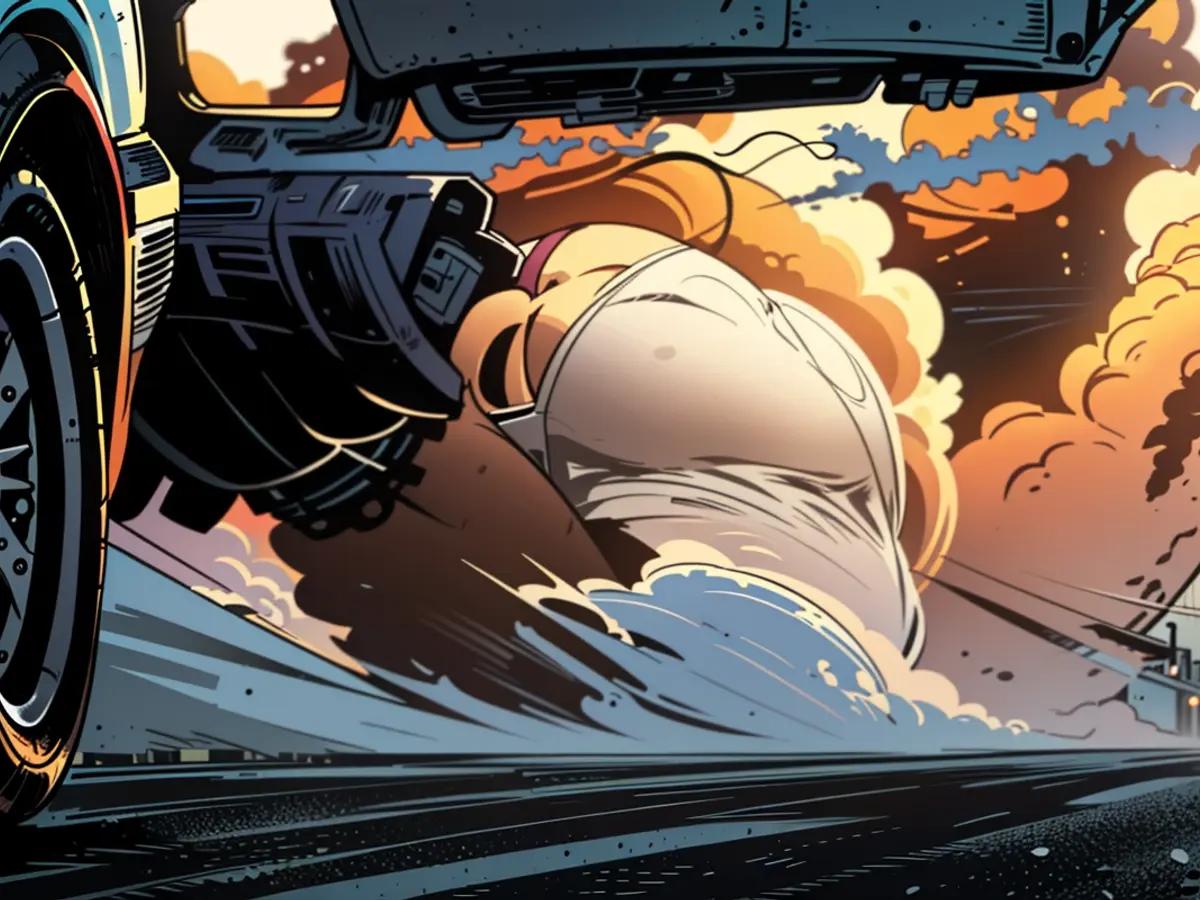- Brussels calls debate on diesel cars "misleading"
The European Commission has no plans to retroactively amend regulations on compliance with emission limits for cars, potentially leading to the scrapping of millions of diesel vehicles. In a letter to German Transport Minister Volker Wissing, EU Internal Market Commissioner Thierry Breton stated that the Commission has no intention of making any retroactive changes and will not take any measures that disadvantage citizens who purchased cars in good faith. The Commission also stressed that it does not want to impose any additional administrative burden on car manufacturers. The letter was obtained by the German Press Agency.
The FDP politician Wissing had previously warned the EU Commission against the scrapping of millions of diesel vehicles and demanded clarification in a letter to Commission President Ursula von der Leyen. The background to the debate is a procedure before the European Court of Justice (ECJ). At its core, it is about compliance with emission standards - i.e. emission limits for diesel vehicles.
From the Federal Ministry of Transport, it was stated that the Minister sees his concerns confirmed by the letter from the EU Commissioner. The Commission may emphasize that it does not plan any retroactive measures towards car manufacturers and citizens, but that is not the point. It is not the Commission, but the ECJ that will make this decision, a spokesperson emphasized. "Therefore, it is now important, as proposed by Federal Minister Wissing, to make a clarification in the European regulatory framework." Wissing has already approached his EU counterparts on this matter.
EU regulations on emission values
According to EU law, emission values must be complied with under certain conditions (so-called NEFZ testing). This happens in test centers. Following the diesel scandal, real-world driving emission tests (RDE) were also developed. Such a procedure is now also valid for the approval of new vehicle types from the "Euro 6d temp" standard onwards. According to Commission statements, the ECJ had already ruled in an earlier judgment that emission tests may no longer be limited to laboratory tests. However, older Euro 5 and Euro 6 diesel vehicles are approved under the NEFZ and do not meet the RDE reference values.
In the court proceeding, the EU Commission, according to Wissing, took the position that emission limit values would apply to every driving situation. This would mean that the limit values would also have to be complied with during so-called full-load drives with inclines - for example, when a fully loaded car drives uphill and emits relatively more pollutants. Wissing stated that this is not feasible with the current state of technology. All Euro 5 approvals would be called into question. Consequences for vehicles after the Euro 6 emission standard cannot be ruled out. "Millions of vehicles are thus threatened with being taken off the road," Wissing wrote in his letter.
The court's decision is still pending.
Breton referred to Wissing's assumption in his response, requested by Commission President von der Leyen, as "misleading." The Commission had merely stated that "car emission limits must be met under normal operating conditions," a spokesperson added. This did not apply to every driving situation. The authority had also not changed its stance on this issue. Breton wrote: "Without prejudicing the outcome of the pending legal proceedings, the Commission will continue to promote solutions that foster clean and healthy air and a predictable and implementable legal framework."
Vehicles affected by the rulings, according to Commission statements, are those put into circulation before the current testing procedures came into force, between 2011 and 2018.
Legal concerns over scrapping
The ADAC emphasized that the affected vehicles had been properly registered. "Changes in the testing procedure for the type approval of a vehicle at a later date cannot, in the opinion of ADAC lawyers, be applied retroactively." A driving ban would be "inappropriate" under these circumstances.
The President of the German Association of the Automotive Industry (VDA), Hildegard Müller, also stated: "Retroactive application of new procedures and standards would in any case be a violation of the principle of non-retroactivity and the rule of law in EU and German constitutional law."
- The Federal Ministry of Transport agreees with Transport Minister Wissing's concerns, as they believe the decision regarding the compliance of emission limits for diesel vehicles lies with the European Court of Justice, not the EU Commission.
- In response to concerns raised by Transport Minister Wissing, EU Internal Market Commissioner Thierry Breton clarified that the Commission does not intend to retroactively change emission limit values for cars, but rather promote solutions for clean and healthy air within a legal framework.








